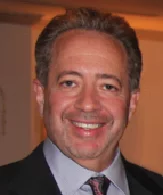October 15/22, 2018: Volume 34, Issue 9
By Steven Feldman
 We all work hard for a living. Hard could mean long hours. Hard may mean physically grueling or mentally taxing. Hard could mean responsibility. You get the point.
We all work hard for a living. Hard could mean long hours. Hard may mean physically grueling or mentally taxing. Hard could mean responsibility. You get the point.
Why do we do it? To achieve better lives for us and our families. For some, that could mean financial security. It could be the American Dream, giving your kids more than you had growing up. It could be materialistic: nice homes, maybe even a second home, a nice car, fancy clothes, lavish vacations. More money = a better life. Money can even buy you love, or at least companionship. The one thing money can’t buy? Health.
I met Steve Joss about 20 years ago at a Carpet One convention. Great guy. He owns The Vertical Connection Carpet One in Columbia, Md., although his son, Adam, is now running the show (probably with a bit of unsolicited input from his dad).
Steve and I became friends rather quickly. His roots are in New York, and he used to drag race on the JFK Expressway when he was young, a few miles from where I lived for 25 years. Queens boy. Taxi driver. Wholesale toy salesman. We both can appreciate a great meal, maybe too much.
I always admired Steve and his wife, Kathy, especially the closeness between them and their kids, Adam and Lauren. So close that when I asked Steve what he was doing one New Year’s Eve, he said he and Kathy were spending it with Adam and Lauren. What kids in their 20s with a bevy of friends would prefer to ring in the new year with their parents? I knew when I had children, I would want them to feel the same way about me.
Steve was diagnosed with multiple sclerosis in his 40s and became more physically challenged over time. But it never stopped him; I’ve encountered more girlfriends that complained about a chipped finger nail than Steve did about his MS. Whatever hardships he encountered just became his reality. He joined Carpet One, built a nice business and now has a magnificent showroom. He’s active with the Maryland Floor Covering Association, World Floor Covering Association and board of trusties for Howard College. Truth be told, he’s more involved than most people with no physical restrictions.
A few years ago a scan for something else revealed that Steve had kidney cancer; one kidney was removed. No big deal—you really only need one. Unless you’re Steve, and the remaining kidney starts to fail. He now has stage 5 chronic kidney disease. Kathy’s history with cancer eliminates her as a donor. At 68 he is on the wait list, but the list right now is seven years. The only way to get past the wait list is for someone to donate a kidney directly to the person needing one. There are well over 100,000 people in the U.S. like Steve waiting for a kidney transplant, 5,000 in Maryland alone. Many will die waiting. You can have all the money in the world, but it is illegal to buy an organ. Gofundme does not apply here.
So Steve has to go on dialysis three days a week, 52 weeks a year, but you really have no days off in this situation until such time as he is lucky enough to receive a kidney. There are many rules to follow, like no more than 32 ounces of fluid in a 24-hour period. I’ve swilled that much beer in 15 minutes. He gets cold while his blood is being cleaned—because there is no blood in the body.
Despite all that, Steve doesn’t complain. Everything is always great. He has everything. Except a kidney.
So what is my purpose for writing this column? No, I am not expecting anyone to pick up the phone and offer a kidney to Steve. That would take an unbelievably selfless individual. But if you ever have a loved one who finds himself or herself in this unfortunate situation, know that the University of Maryland kidney transplant center, one of the busiest in the country, has made the surgery easier than ever to donate. Surgery is done entirely through the navel. You are home in one to two days, back to work in a couple of weeks—all with the knowledge you saved someone’s life. And if you donate a kidney and ever need one, you move to the top of the list.
Next, we all must be thankful for what we have. It can always be a whole lot worse. Third, it’s OK to work hard to increase the bank account, but remember money doesn’t buy you health. And finally, even in the most adverse situations, try to stay positive. It’s probably been what has gotten Steve Joss this far.
